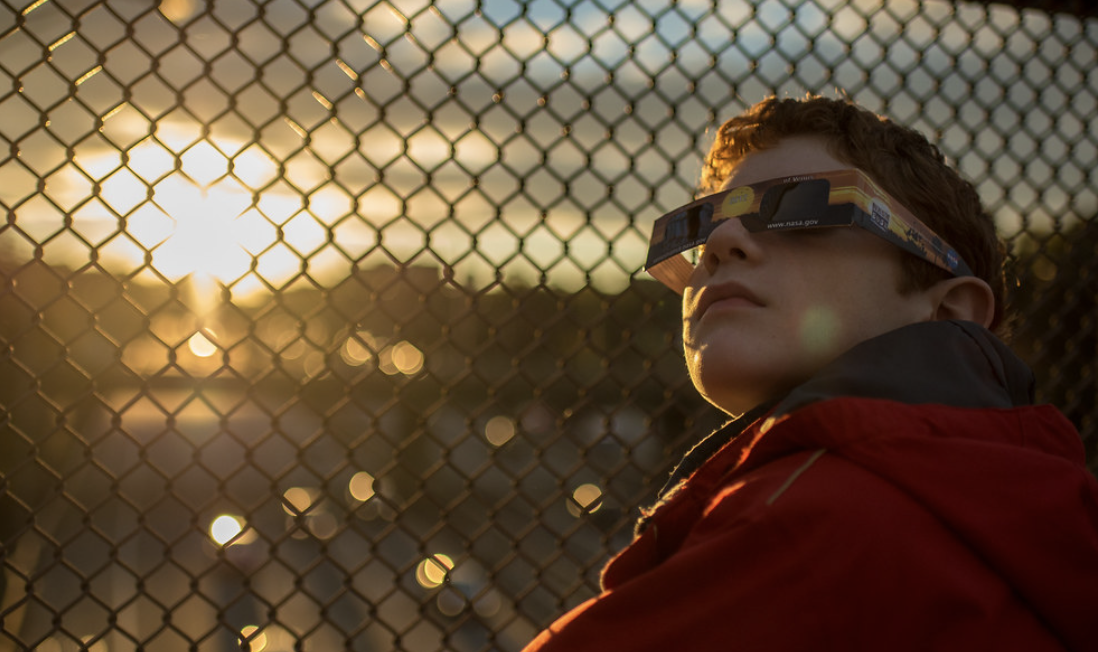The recent solar eclipse on Monday, April 8 has left millions in North America with beautiful photos and many solar eclipse glasses lying around haphazardly. Now that this momentous event has passed, there is an uncertainty of what to do with these glasses. Especially for gently used glasses, it would be a waste for them to all end up at the bottom of trash bins or stuffed into the back of closets to be forgotten for years. However, if properly stored, these eclipse glasses are safe to be reused for future celestial events or for donations to areas around the world that may need this eyewear protection.
According to CNN, if solar eclipse glasses meet a safety standard known as ISO 12312-2, they are perfectly safe to be reused so long as the lenses are not scratched, punctured, or damaged in any way. It is also strongly recommended to not use water or cleaners to wipe the glass lenses as this can damage the cardboard that holds the glasses together. Furthermore, per the AAS standards, the Washington Post cites that despite how some glasses may state that solar glasses cannot be used if they are more than three years old, as long as the glasses are not damaged, they should be able to be reused continuously and theoretically, forever.
For the majority of people who don’t want to hold on to their solar glasses from this year and who would prefer to get rid of them, there are numerous donation centers and organizations that are collecting leftover glasses that are in good condition. Joseph Rodio, the director of South Hadley Public Library, is one place that is collecting solar eclipse glasses to give to students in Chile and Argentina to prepare for the October eclipse that is set to happen in that region.
According to westernmassnews, Rodio explained how “I mean, how many glasses were distributed, right? Everyone was watching, most people you know had a pair of eclipse glasses and now, they’re really useless. I mean we’re not going to have another eclipse in a long time, so you know, that’s a lot of paper, a lot of cardboard that’s just going to get thrown out and, you know, it can be used again.”
While this is occurring in Boston, a long way away from New Jersey, there are other organizations with similar goals in mind that are closer. According to CNN, one of these groups is known as, Astronomers Without Borders. This nonprofit organization’s mission is to recycle eclipse glasses to make them available to people who may not have access to these glasses and who need them to safely view upcoming eclipse events.
In their mission, this group emphasizes how “Every pair of glasses will be inspected by trained volunteers to make sure they meet safety certifications, and are not damaged or counterfeit, and then packed for storage and shipping.”
Safety is always a main concern, and if not properly checked, damaged glasses can cause severe problems for eyes. This is the second time that this collection is being conducted, with the first being widely successful for the 2017 American solar eclipse. Through the contributions of people across the globe, solar eclipse glasses are able to be supplied to areas where they are needed most. Nationally across the United States, Warby Parker is one center working with the Astronomers Without Borders to aid in collecting these glasses. So if you have any extra solar eclipse glasses lying around, this is one center that is a great place to donate them to.
Looking to the future, according to CBSnews, solar eclipses typically occur around two to three times a year, however only in certain locations. Unfortunately for the United States, while total eclipses in themselves are rare, for them to happen in the U.S. is even more scarce, making Monday’s event so special. Thus while we wait for the next eclipse to make headlines in America, think about dropping off your solar eclipse glasses to nearby organizations hosting dropoff centers to help share this beautiful event with another person across the globe.








